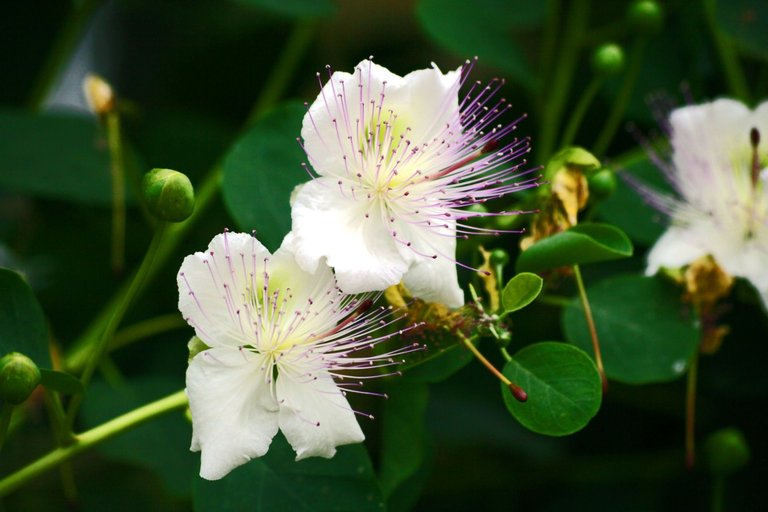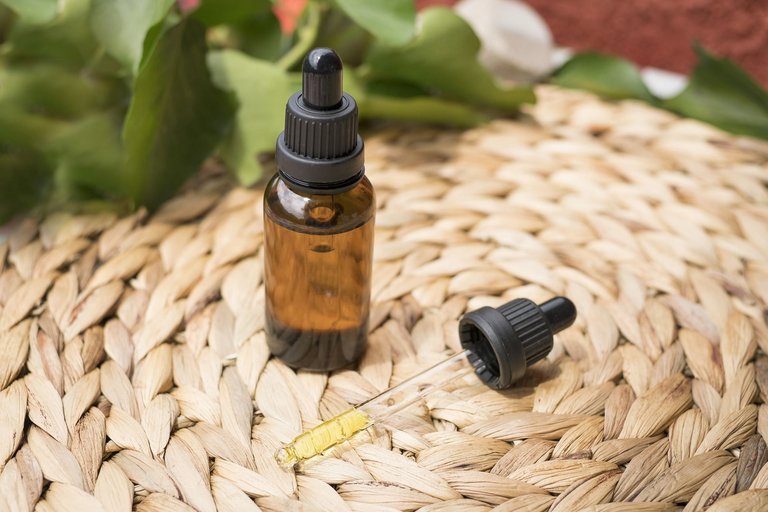Good morning everyone, today I would like to share with you my personal experience in using caper as a phytotherapeutic remedy.

Foto di fragiskos fragiskos da Pixabay
Description: perennial herbaceous
Minimum cultivation temperature: -5 °C.
Balsamic period: March.
Toxicity: low, may cause gastrointestinal disorders.
Do not take Capparis spinosa supplements during pregnancy and breastfeeding, always consult a doctor before taking phytotherapeutic preparations based on this plant.
Beneficial properties: diuretic and antirheumatic.
Confirmed activities: food (flower buds and fruits).
Active ingredients: quercitin, rutin, kaempferol and capric acid.
PREPARATIONS
Infusion: prepared with 3 g of root bark per 100 ml of water for diuretic function.
Acetolyte: prepared with 10 g of root bark, macerated for 21 days in 100 ml of solution (45 ml of 96% alcohol, 30 ml of water and 25 ml of vinegar). The filtrate can be stored for 3 years due to its antirheumatic function (topical use).
NOTES
The flower buds are used for food purposes and are preserved in salt.
The fruits are oval berries called capers and are preserved in vinegar.
The caper is one of the few species whose dissemination occurs through lizards that feed on the liquid in which the berries are immersed, the latter remain attached to the body of the reptiles and are transported to their nests, often growing in cracks in the walls.
Buongiorno a tutti, oggi vorrei condividere con voi la mia esperienza personale nell'utilizzo del cappero come rimedio fitoterapico.

Foto di Erin Stone da Pixabay
Descrizione: suffrutice.
Temperatura minima di coltivazione: -5 °C.
Periodo balsamico: marzo.
Tossicità: bassa, può causare disturbi gastrointestinali.
Non assumere integratori di Capparis spinosa in gravidanza e allattamento, consultare sempre un medico prima di assumere preparati fitoterapici a base di questa pianta.
Proprietà benefiche: diuretico e antireumatico.
Attività confermate: alimento (boccioli dei fiori e frutti).
Principi attivi: quercitina, rutina, kaempferolo e acido caprico.
PREPARAZIONI
Infuso: preparato con 3 g di corteccia della radice per 100 ml di acqua per la funzione diuretica.
Acetolito: preparato con 10 g di corteccia della radice, fatta macerare per 21 giorni in 100 ml di soluzione (45 ml di alcol 96°, 30 ml di acqua e 25 ml di aceto). La conservazione del filtrato è pari a 3 anni, per la funzione antireumatica (uso topico).
NOTE
I boccioli del fiore sono utilizzati a scopo alimentare e si conservano sotto sale.
I frutti sono bacche ovali chiamati capperoni e si conservano sotto aceto.
Il cappero è una delle poche specie la cui disseminazione avviene tramite le lucertole che si nutrono del liquido dove sono immerse le bacche, queste ultime restano attaccate al corpo dei rettili e vengono trasportate fino ai loro nidi, crescendo spesso in fessure nei muretti.
Sources - Fonti :
https://erbeofficinali.org/dati/q_scheda_res.php?nv_erba=CAPPERO
https://www.erboristeriadeifrati.it/glossary/cappero-capparis-spinosa/
Bellissima pianta! :)
!discovery 40
This post was shared and voted inside the discord by the curators team of discovery-it
Join our Community and follow our Curation Trail
Discovery-it is also a Witness, vote for us here
Delegate to us for passive income. Check our 80% fee-back Program
Congratulations @ghilvar! You have completed the following achievement on the Hive blockchain And have been rewarded with New badge(s)
Your next target is to reach 27000 upvotes.
Your next target is to reach 200 replies.
You can view your badges on your board and compare yourself to others in the Ranking
If you no longer want to receive notifications, reply to this comment with the word
STOPCheck out our last posts: